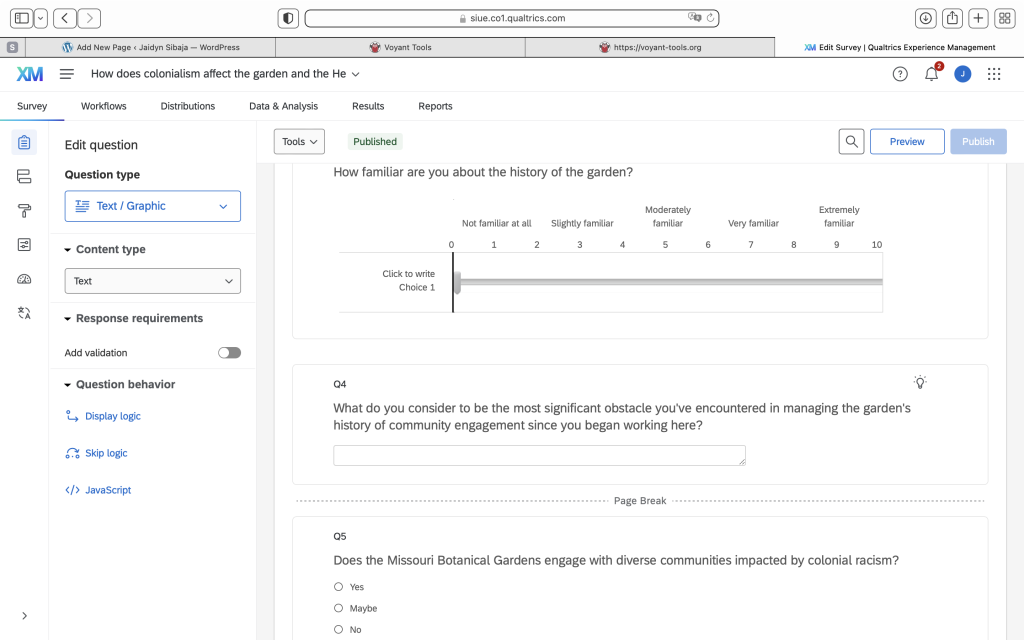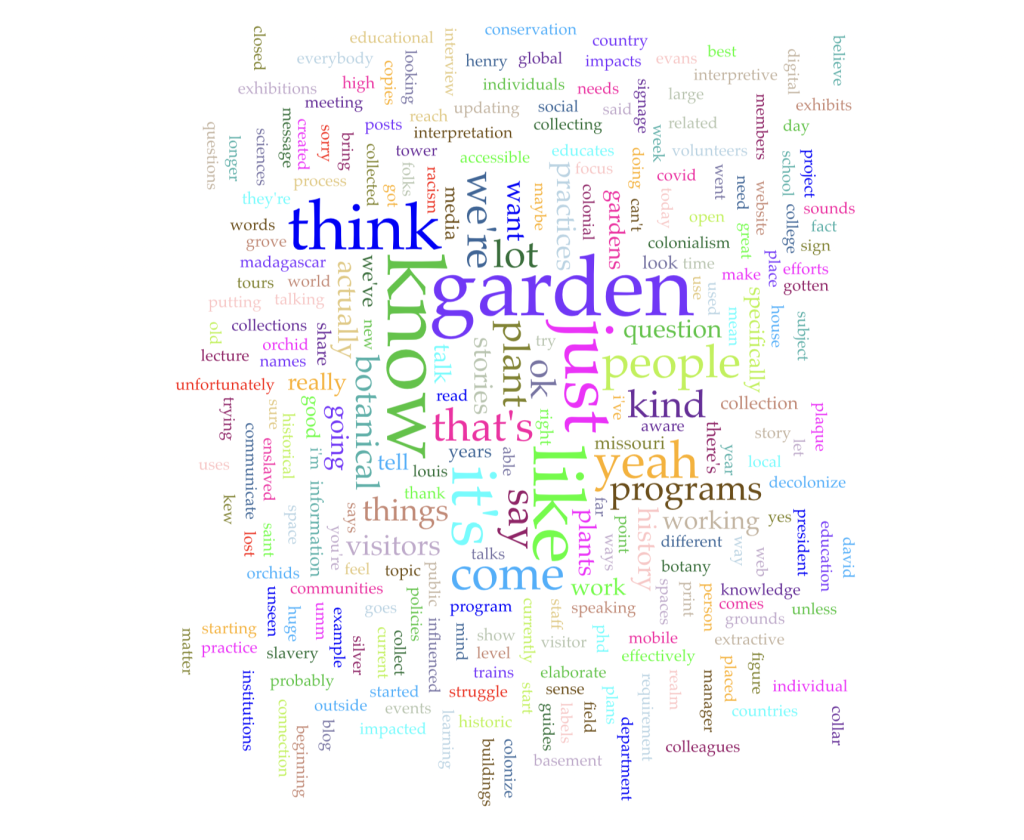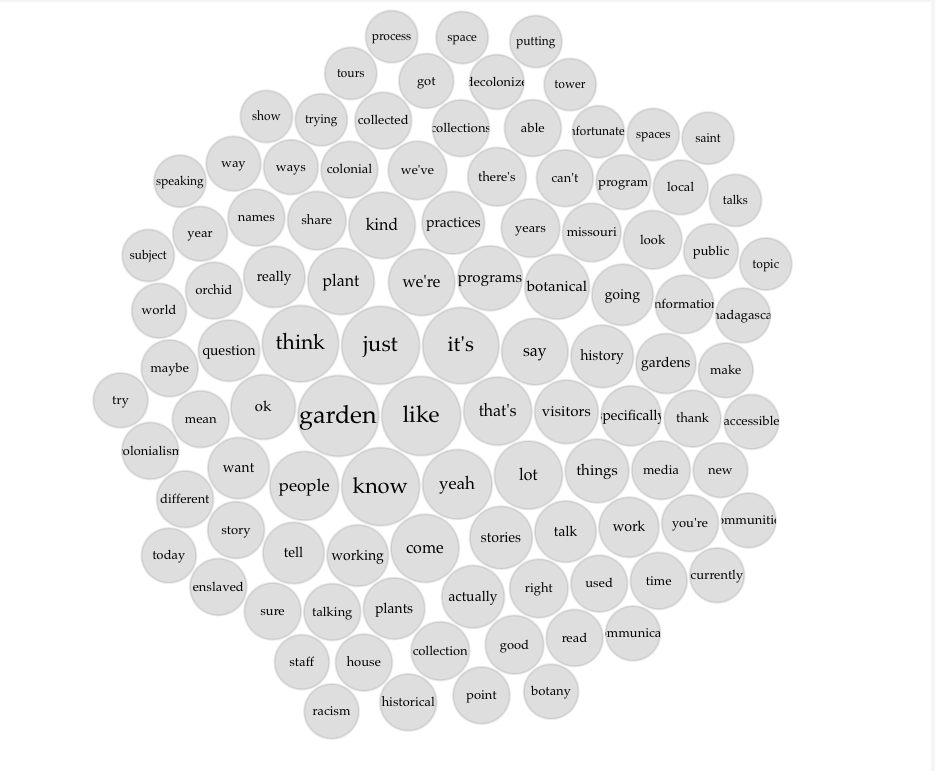It has been quite the semester for CODES and MOBOT! There is so much hard work being done and so much to share about what we have been doing. My sub-group is comprised of Kyra, Jay, Sophia, and I (Jaidyn). We are guided by our research question “How have extractive colonial practices impacted the garden and herbarium?” This write up combines labs 2 and 3 together due to some survey issues, which will also be discussed in the write up.
Phase 1 of this research consisted of the team developing and facilitating an online survey to staff and volunteers at the MOBOT. Although our survey did not end up having the success we had hoped for, the lack of responses is what I believe provided some of the most valuable insight. Our original survey was comprised of 10 questions, simple demographic questions, ratings, and various open-ended questions. Although the survey was started by multiple people, the team only received one complete survey back. Phase 2 of our research consisted of the team conducting a focus group with different MOBOT staff. Utilizing questions from our survey, we made any changes necessary and used the questions for our focus groups. Our focus groups turned out very successful and it helped provide a lot of good insight that can help us lay a solid base for the next (unknown) phases of our research.

A common theme I saw emerge from the focus groups was a lot of stop and go. It was mentioned multiple times when discussing topics such as, exhibits highlighting the upbringing of the garden, educational programming, plant/garden history etc. in relation to colonialism, that there has been mentions of wanting to integrate this information and tell these stories, but not the same amount of effort put towards executing these ideas.d
“I feel that there’s a lot of talk and a lot of start to do those things but I don’t think currently I can really reflect and say that we’re doing maybe our best or truthfully anything in that matter”
Jennifer wolff, manager of mobot interpretation department, speaking about mobots DECOLONIZATION efforts


In retrospect, I have some ideas about why the online surveys struggled. Qualitative data can sometimes be tricky to collect from sources such as online surveys. The topic of our research is very complex because our research question is complex. Our research question has a lot of different aspects to it and as we continue to investigate, we are really seeing those “wicked problem” characteristics. The colonial practices in the garden go back over 100 years ago and there is a lot of unpacking and learning to do when considering what the root cause of these problems are and how they have continued to leave an impact over the years. Our questions are ones that not everyone is going to have an answer to if there even is an answer at all. There will be times when the answers to our questions are a very simple “I’m unsure,” but that is why I think focus groups and being able to engage with the people we are collecting data from was far more effective for our team than surveys.
At the end of the day, our goal is to continue to investigate these problems and develop effective solutions to make strides in change. As any wicked problem, this is not something we can figure out overnight. There are many factors in the garden that need to be considered. The MOBOT and the research teams will make little progress in decolonizing the gardens if we individuals continuously excuse or ignore past mistakes and behaviors. We can only make strides of progress if we work as a team in acknowledging the past and how we can improve.